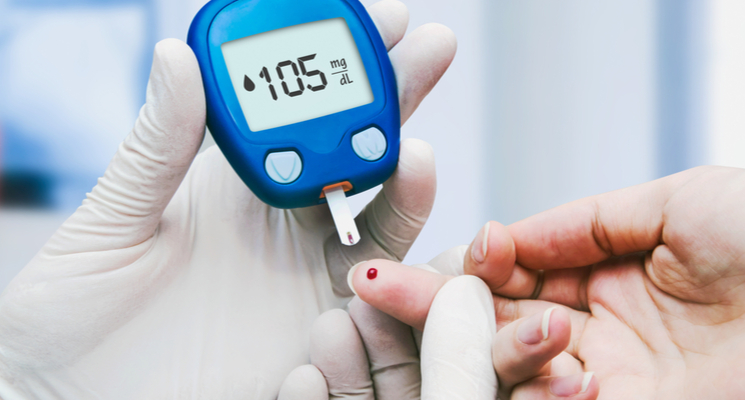Diabetes is a chronic health condition that affects millions of people not only in Dubai but worldwide. It occurs when your body is unable to produce the required amount of insulin which regulates your blood sugar levels, or effectively use what it produces. Diabetes is a serious condition as it can lead to various other critical health problems if not properly managed, including heart disease, kidney disease, nerve damage, and blindness.
It is recommended to get it checked by visiting your local healthcare provider. If however, you or a loved one have serious diabetic symptoms, you can also book a doctor on call in Dubai, and get help at home.
What Are the First Signs of Being Diabetic?
The first signs of diabetes may vary from person to person, but common early indicators include increased thirst and urination, fatigue, blurry vision, slow-healing wounds, and unexplained weight loss.
It is essential that you get tested if you experience any of these symptoms.
1. Frequent Urination
One of the most common early signs of diabetes is frequent urination. This occurs because excess sugar builds up in your bloodstream and is then excreted through your urine. As a result, you may need to urinate more often than usual, including during the night.
2. Increased Thirst
As you urinate more frequently, your body loses more fluids, causing you to feel thirsty. This is a natural response to dehydration. If you find yourself constantly thirsty, even after drinking plenty of fluids, it could be a sign of diabetes.
3. Unexplained Weight Loss
If you are losing weight without trying, it could be a sign of diabetes. When your body is unable to use glucose as a source of energy, it starts to break down fat and muscle for energy instead. This can cause unexplained weight loss, even if you are eating normally.
4. Fatigue
If you are feeling tired or lethargic, it could be a sign of diabetes. This occurs because your body is not effectively using glucose for energy, leaving you feeling drained and fatigued.
5. Slow Healing
Diabetes can affect your body’s ability to heal. This is because high blood sugar levels can damage blood vessels, reducing blood flow to wounds and making them slower to heal. If you notice that your cuts and bruises are taking longer to heal than usual, get tested immediately.
6. Blurred Vision
High blood sugar levels can cause changes to the shape of your eye lenses, leading to blurred vision. If you notice that your vision is becoming increasingly blurry, it could be a sign of diabetes.
Other Common Signs of Diabetes
Unfortunately, many people are unaware they have diabetes until they experience severe symptoms. This is why it is essential to catch early signs of diabetes. Here are some signs you might be diabetic:
1. Extreme Hunger
Diabetes impacts your body’s ability to use glucose as a source of energy. As a result, you may feel hungry more often, even if you have recently eaten. This is because your body is unable to effectively use the glucose in your bloodstream.
2. Numbness or Tingling
Diabetes can cause nerve damage, leading to numbness or tingling in your hands, feet, or legs. This is known as diabetic neuropathy and can be a sign of poorly managed diabetes. If you experience these symptoms, it is important to seek medical attention.
3. Dry Mouth
Diabetes can cause dry mouth, which occurs as a result of your body not producing enough saliva. This can lead to a dry, sticky feeling in your mouth, making it difficult to swallow or speak.
4. Skin Problems
Diabetes can cause skin problems, including dry skin, itching, and infections. This is so, because levels of high blood sugar can lead to bacterial and fungal infections, which can be difficult to treat.
Preventing Diabetes
While there is no surefire way to prevent diabetes, there are steps you can take to reduce your risk:
Maintain a Healthy Weight
Obesity is a major risk factor for diabetes. Maintaining a healthy weight can reduce the risk of developing diabetes and other chronic health conditions.
Exercise Regularly
Exercising regularly can help improve insulin sensitivity, allowing your body to use glucose more effectively. This can help prevent or manage diabetes.
Eat a Healthy Diet
Incorporating a diet rich in whole grains, fruits, vegetables, lean protein, and healthy fats, can aid in reducing your risk of developing diabetes. It is also important to limit your intake of processed foods, sugary drinks, and unhealthy fats.
Manage Stress
If left unmanaged, stress can increase your risk of developing diabetes, as it can affect your blood sugar levels. Practicing stress-management techniques, such as deep breathing, meditation, or yoga, can help immensely.
Get Regular Checkups
Regular checkups with your healthcare provider can help identify any early signs of diabetes, allowing for early intervention and treatment.
Conclusion
If you are experiencing any of the symptoms mentioned above, it is important to speak to your healthcare provider to determine if you have diabetes and develop a treatment plan to manage your symptoms. Additionally, making healthy lifestyle choices can help reduce your risk of developing diabetes and other chronic health conditions.
If due to mobility issues or any other reason you cannot visit the hospital, do not fret! Just visit ServiceMarket and book an appointment with a home doctor in Dubai at your convenience.







